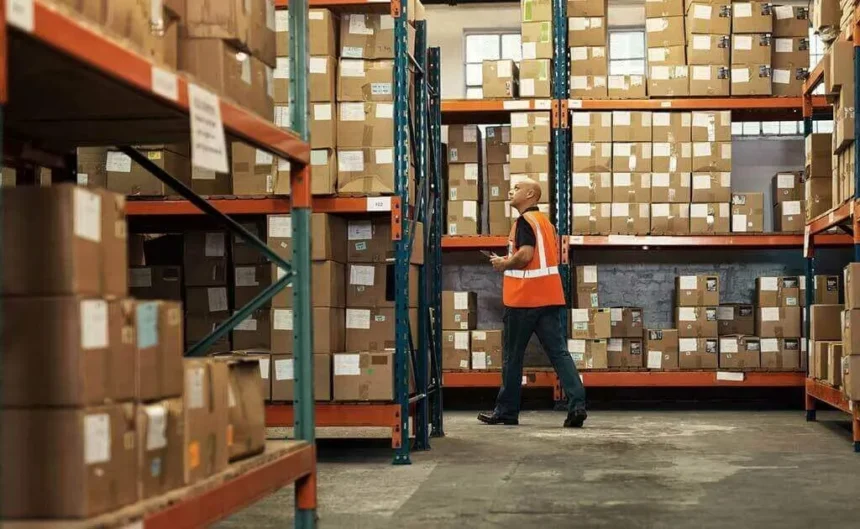Wholesale distributors play a pivotal role in the supply chain, bridging the gap between manufacturers and retailers. They serve as the backbone of global commerce, ensuring products reach businesses efficiently, reliably, and cost-effectively. In this article, we’ll delve into the role of wholesale distributors, their importance, benefits, and how to choose the right Distributor for your business.
What is a Wholesale Distributor?
A wholesale distributor is a business entity that purchases goods in bulk directly from manufacturers and sells them in smaller quantities to retailers, businesses, or other intermediaries. By buying in large volumes, distributors benefit from lower prices, which allows them to profit while still offering competitive rates to their customers.
For example:
- A clothing distributor might buy thousands of units of a popular jeans brand and sell them to boutique shops.
- A food distributor could purchase packaged snacks in bulk and supply them to local grocery stores.
The Role of Wholesale Distributors in the Supply Chain
Wholesale distributors act as intermediaries, streamlining the distribution process. They perform several essential functions, including:
1. Inventory Management
Distributors maintain large inventories, ensuring consistent availability of products. This spares retailers and businesses from the burden of stocking excessive amounts of merchandise.
2. Logistics and Delivery
Distributors handle the complexities of logistics, transporting goods from manufacturers to their clients efficiently. This reduces transportation costs and time for retailers.
3. Product Knowledge
Many wholesale distributors specialize in specific industries, providing expert advice on products and trends. This expertise can help retailers make informed purchasing decisions.
4. Economies of Scale
By purchasing in bulk, distributors secure discounted rates from manufacturers. These savings are often passed on to their customers.
5. Credit and Payment Flexibility
Distributors often offer payment terms to retailers, such as 30-day credit, helping businesses manage their cash flow more effectively.
Types of Wholesale Distributors
Wholesale distributors vary based on the industries they serve. Common categories include:
1. General Merchandise Distributors
These distributors handle a wide range of products, from household goods to electronics.
2. Specialty Distributors
Specialty distributors focus on specific industries, such as fashion, electronics, or pharmaceuticals.
3. Food and Beverage Distributors
Supplying grocery stores, restaurants, and catering businesses, these distributors handle perishables and packaged foods.
4. Industrial Distributors
Serving manufacturing and construction sectors, these distributors provide tools, machinery, and raw materials.
Advantages of Using Wholesale Distributors
For businesses, partnering with a wholesale distributor offers numerous advantages:
1. Cost Savings
Buying products in bulk through a distributor reduces the per-unit cost, improving profit margins.
2. Streamlined Operations
Distributors handle transportation, storage, and logistics, allowing businesses to focus on their core operations.
3. Access to Diverse Products
Many distributors carry a broad inventory, giving businesses access to a wide variety of goods from a single source.
4. Consistency and Reliability
With a reliable distributor, businesses can maintain consistent stock levels, reducing the risk of running out of popular items.
5. Expert Support
Distributors often have industry-specific knowledge and can guide businesses on market trends and best-selling products.
Challenges Faced by Wholesale Distributors
While wholesale distributors offer numerous benefits, they also face challenges, including:
1. Rising Competition
With e-commerce platforms and direct-to-consumer models, traditional distributors face increased competition.
2. Supply Chain Disruptions
Global events, such as pandemics or geopolitical conflicts, can disrupt supply chains and impact inventory availability.
3. Technology Integration
The need to adopt advanced inventory and logistics systems can be a hurdle for traditional distributors.
4. Maintaining Margins
With manufacturers increasingly selling directly to consumers, distributors must find ways to stay competitive while maintaining profitability.
How to Choose the Right Wholesale Distributor
Selecting the right distributor is crucial for the success of your business. Here’s what to consider:
1. Reputation and Reliability
Research the distributor’s track record. Look for reviews, testimonials, and references to ensure they are dependable.
2. Industry Expertise
Choose a distributor with expertise in your specific industry. They will better understand your needs and provide valuable insights.
3. Product Range
Ensure the distributor offers a variety of products that align with your business needs.
4. Pricing and Terms
Compare prices and payment terms across distributors. Look for competitive rates and flexible payment options.
5. Location and Delivery
Consider the distributor’s location and delivery capabilities. A nearby distributor can reduce transportation costs and delivery times.
6. Technology and Support
A distributor with modern inventory systems and strong customer support can enhance your business operations.
Trends in Wholesale Distribution
The wholesale distribution industry is evolving, driven by technology and changing consumer demands. Key trends include:
1. E-Commerce Integration
Many distributors now offer online portals, making it easier for businesses to place and track orders.
2. Sustainability
Distributors are adopting sustainable practices, such as reducing packaging waste and optimizing transportation routes.
3. Digital Transformation
From inventory management to customer relationship tools, technology is transforming how distributors operate.
4. Direct-to-Consumer (DTC) Challenges
As manufacturers explore DTC models, distributors must adapt by offering added value, such as exclusive product access or enhanced logistics.
Wholesale Distributor vs. Wholesaler: What’s the Difference?
While the terms are often used interchangeably, there are differences:
- Wholesalers typically sell directly to retailers in smaller quantities and may not offer additional services like logistics or credit terms.
- Distributors often serve as an extension of the manufacturer, providing broader services like marketing, storage, and technical support.
Conclusion
Wholesale distributors are vital to the global economy, facilitating the efficient movement of goods from manufacturers to businesses. By understanding their role and choosing the right partner, businesses can optimize their supply chain, reduce costs, and focus on growth.
When selecting a distributor, prioritize reliability, industry expertise, and the ability to meet your specific needs. With the right distributor, your business can thrive in a competitive marketplace.








